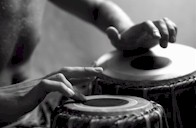
A resurgence of tribalism in the modern era has been at work in the modern world since long before anybody had heard of Crips, Bloods, or Osama bin Laden.
For example, once it occurs to you to look for it, a tribalistic orientation is hard to miss in Nazi Germany’s fascination with its “Aryan” heritage, its concerns about racial purity, and so forth. Similar themes are only slightly more muted in Japanese militarism, and are likewise present in the propaganda of other fascist states of the era.
It is also worth noting that all the countries that went fascist during the twentieth century were feeling a certain sting of dismissal or disrespect.
Japan had made great strides in industrialization and modernization, and had already defeated Russia in one war, but was still treated as something of an afterthought on the world stage.
Germany had only recently become a country in the modern sense, and under the humiliating terms of the Versailles treaty following the First World War, could hardly escape a sense that it was being punished for having had the effrontery to try to claim a place at the table of great nations.
Italy, which had also only recently evolved from a patchwork of minor kingdoms and city-states into a country in the modern sense, was likewise regarded as something of a Johnny-come-lately--a status that could not have helped but chafe for the proud birthplace of the Roman Empire and the Renaissance, and a society that had continued to produce many of the world’s foremost cultural achievements.
These were the kinds of slights for which physically thrashing the insulter traditionally promises some measure of satisfaction. But they were also not the only sources of a sense of personal diminishment--particularly for men.
For vast numbers of citizen-soldiers who had lived through it, the mechanized efficiency of slaughter in the trenches of World War I seemed to have rendered the age-old manly virtue of valor in combat all but irrelevant in the modern era. In the ensuing anything-goes atmosphere of the 1920s, strength of character in a variety of other forms also began to appear seriously devalued. Then the Great Depression crashed down on people’s lives, demolishing self-esteem along with personal finances and opportunities to earn a decent living and support a family. People by the millions suddenly felt wretchedly insignificant.
Some folks who feel diminished engage in drive-by shootings; others choose suicide bombing; still others go in for goose-stepping. The variety in forms of expression may simply reflect differences in the means available to a given set of people at a given time.


